
There is a need for strict policies regarding the use of AI in the managed care space, according to Douglas S. Burgoyne, Pharm.D., MBA, FAMCP, adjunct associate professor at the University of Utah College of Pharmacy.

There is a need for strict policies regarding the use of AI in the managed care space, according to Douglas S. Burgoyne, Pharm.D., MBA, FAMCP, adjunct associate professor at the University of Utah College of Pharmacy.

Health plans and PBMs are using AI to aggregate data, summarize information and enhance their formulary decision-making processes, according to Douglas S. Burgoyne, Pharm.D., MBA, FAMCP, adjunct associate professor at the University of Utah College of Pharmacy.

Technology can help address the complexities of specialty medications by automating processes and enabling proactive interventions to ensure patients stay on their critical therapies, according to Kristen Whelchel, Pharm.D., CSP, Research and Patient Care Improvement Pharmacist with Vanderbilt Specialty Pharmacy's Department of Health Outcomes and Research.
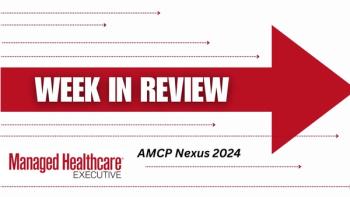
Here’s what you missed this week on Managed Healthcare Executive.

IJ Anosike, M.D., M.P.H., assistant professor of pediatrics at the Montefiore Medical Center in the Bronx, explains how COVID fatigue can lead to a downward trend in children getting the proper vaccines.

Kristen Whelchel, Pharm.D., CSP, Research and Patient Care Improvement Pharmacist with Vanderbilt Specialty Pharmacy's Department of Health Outcomes and Research, explains how technology identifies at-risk patients, coordinates medication refills and more.

Crescent Moore, Ph.D., Pharm.D., Director of Part D/Pharmacy at BluePeak Advisors, highlights the expected shift of Medicare beneficiaries towards Medicare Advantage Prescription Drug (MA-PD) plans.

Crescent Moore, Ph.D., Pharm.D., Director of Part D/Pharmacy at BluePeak Advisors, explains the impacts of the upcoming changes to Medicare Part D.

Charlie Dragovich, Senior Director and Client Strategist at Cencora, talks about the way regulations usually work and how the road to the Preapproval Information Exchange Act was different.

An overview of the preapproval information exchange (PIE) from Charlie Dragovich, Senior Director and Client Strategist at Cencora

An optimistic outlook on the future of the biosimilar market driving down pharmaceutical drug spend.

How health plans are implementing strategies to leverage biosimilars to lower costs for both payers and patients, according to Javier Gonzalez, Pharm.D., chief growth and commercial officer of Abarca

Cynthiya Ruban, Ph.D., M.S., Director of Digital Solutions at Cencora says to keep the following in mind as AI use accelerates.

Ways AI is increasingly used in healthcare and how it can benefit healthcare decision makers, according to Cynthiya Ruban, Ph.D., M.S., Director of Digital Solutions at Cencora.
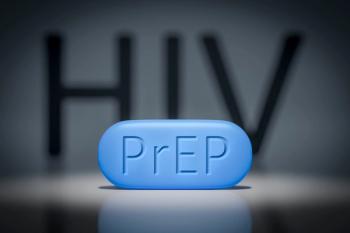
A closer look at the available PrEP options available in the United States.
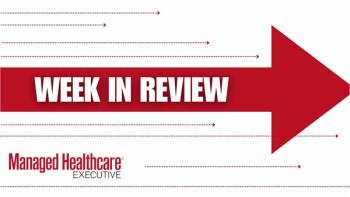
Here’s what you missed this week on Managed Healthcare Executive.

Hympavzi is the first anti-tissue factor pathway inhibitor approved in the United States for hemophilia.

If approved, elinzanetant would be another non-hormonal option for menopausal women seeking hot flash relief.

More research on clinical meaningfulness is on the way, according to Stephanie Graff, M.D., FACP, FASCO.

Early trial data of two virally suppressed, breast-feeding women with HIV shows that there may be less of a risk of HIV transmission during breastfeeding than previously believed.
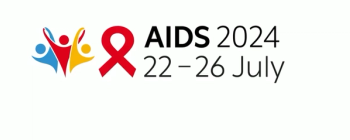
The International AIDS Society's meeting, AIDS 2024, the 25th International AIDS Conference, was held July 22-26 in Munich, Germany. Approximately 10,000 people attended the meeting, the largest in the world devoted to HIV and AIDS. Many of the sessions were live streamed and could be viewed remotely. Here is a sample of our coverage of the meeting.
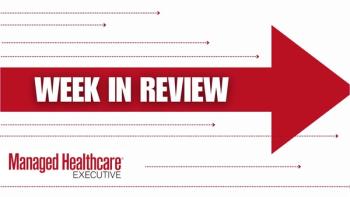
Here’s what you missed this week on Managed Healthcare Executive.

Stephanie Graff, M.D., FACP, FASCO, director of breast oncology at the Lifespan Cancer Institute, explains the importance of the term “clinically meaningful” and shares some of the ways it can be defined.

The twice yearly lenacapavir injection will be available in 120 countries with a series of regulatory filings beginning by the end of this year.

Although many women are living longer after a breast cancer diagnosis, inequalities persist.

Dry eye disease affects up to 15% of the U.S. population and is one of the largest markets in the ophthalmology field.

Less than a quarter of menopausal women have their menopause symptoms entered into their charts at primary care visits, resulting in missed opportunities for timely treatment.

With this year's Breast Cancer Awareness Month now underway, we are sharing eight facts and updates about breast cancer that you might not know about.

Otulfi is the fourth Stelara biosimilar to be approved by the FDA.
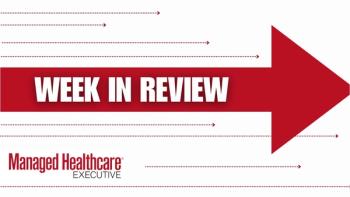
Here’s what you missed this week on Managed Healthcare Executive.